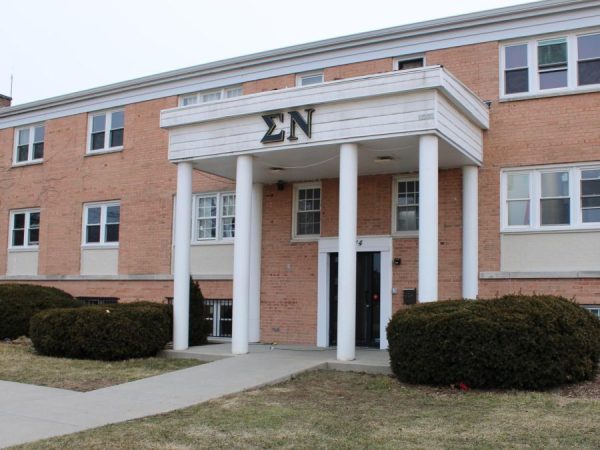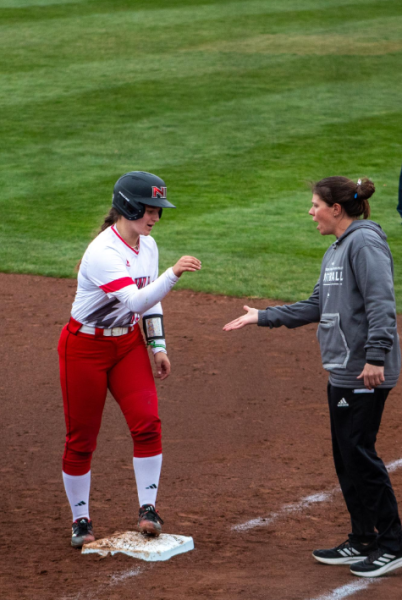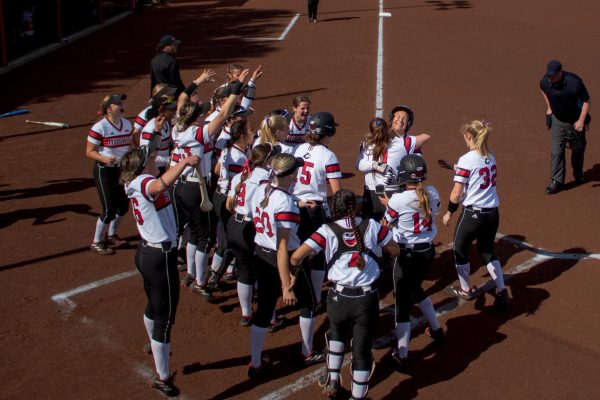Apathy in the younger generation: a breakdown of factors
April 24, 2012
According to an April 3 Northern Star article, the Millennial generation is less concerned about caring, community and political engagement. The article stated students who said it was important to have knowledge of current political affairs decreased from 50 percent for Baby Boomers to 35 percent for Millenials. The percentage of Millennials becoming involved in programs to clean up the environment was also less than the Baby Boomers. Professors and students discussed their opinions on apathy in the younger generation in terms of politics, international news and environmental needs and why they think this apathy is occuring.
Apathy in the Younger Generation: Breakdown of Factors
Politics
Why is the younger generation apathetic about politics?
• Cynicism
Gerald Gabris, professor in the department of public administration, said some members of the younger generation may feel more cynical than indifferent about politics. He said this is because they have not seen the good in politics.
“They’ve seen opportunity erode, and it turned them off to not just politics, but a lot of stuff,” Gabris said.
• Students are unable to relate to politics
Kelsey Shockey, senior public communications major and vice chairman of the College Republicans, said students may take an apathetic view towards politics because politics isn’t relatable to them in any direct way.
“If it’s not tangible and it’s not now, I don’t think they think it’s really relatable to them,” Shockey said.
• Some may see candidates as untrustworthy
According to David Solmitz in “The Roots of Apathy and How Schools Can Reduce Apathy,” political candidates are similar to trained actors.
“Opposing candidates, like actors, are trained to perform in a certain way in order to appeal to the voters,” Solmitz said. “Each has been prepared by their campaign experts with planned information.”
Solmitz said the rapid fire political ads one may see on TV are created to appeal to people’s emotions emotions, not logical reasoning.
Politicans can be phony, according to Gabris.
“Sometimes, they don’t really keep their promises,” Gabris said. “There is a certain phoniness and they don’t practice what they ask people to do.”
• Depends on economic status and type of education
Gabris said whether or not people take an interest in politics has a lot to do with their age and demographic.
“Young people in college have more of a chance to participate in it,” Gabris said. “You may be more aware of politics depending on where you stand economically.”
International news
Why is the younger generation apathetic about international news?
• This is an overgeneralization, but international news is still not on top of students’ priority lists
Michael Clark, assistant professor in political science, said some teenagers in the younger generation are involved in international news and issues.
“Yes, some people couldn’t care less, but then you see young people getting very animated about wanting to make a difference, whether it comes to poverty, hunger, violence and war in other countries and so on,” Clark said.
• Depends on type of education
“I also think it tends to make a difference whether people are pursuing a college education or not,” Clark said. “At an institution like NIU, for example, students get exposed to a wealth of information, and become aware of problems and issues around the world.”
• Students have other ways to spend their time
“On the other side of things, young people have many different ways to make use of their leisure time, and I would say that in general, following world events away from the classroom is not top of their priority list,” Clark said. “Not so long ago, it may have made sense for people to have ignored the rest of the world, but in this day and age, that sort of ignorance is no longer acceptable.”
Environmental Needs
Why is the younger generation apathetic toward environmental needs?
• It isn’t a major concern in their lives right now
Eric Sterling, senior anthropology major and vice president of NIU’s Green Paws, an environmental student activist group, said he thinks students take a highly apathetic view towards environmental needs because it doesn’t apply to their lives at the present moment.
“I think the kids here think once they get out of school, then they will address the situation,” Sterling said.
• There are easy ways to help the environment
Sterling said the younger generation should care about environmental needs because employers are looking for people who are involved in these issues.
He said students can help the environment by riding their bike or walking instead of driving. Students can also eat meat once a week or go vegetarian instead of eating fast food.
What causes teens to feel this apathy?
• Television as a factor
TV plays a large part as to why the younger generation is more apathetic about certain factors, Solmitz states in his article. He said TV does not provide the public with enough educational discussion.
“The television networks realize that the general public is not interested, nor does it have the patience, to listen to thorough, in-depth discussion,” Solmitz said.
Holly Nicholson, NIU social media specialist, said she thinks television is not a factor in the younger generation feeling apathetic.
“Politics and international news are very much ingrained in social media now,” Nicholson said. “It’s hard to be on a social networking site and not encounter political debates or news commentary being shared. “Social media is a significant news source. In fact, more and more news breaks on Twitter and Facebook.”













